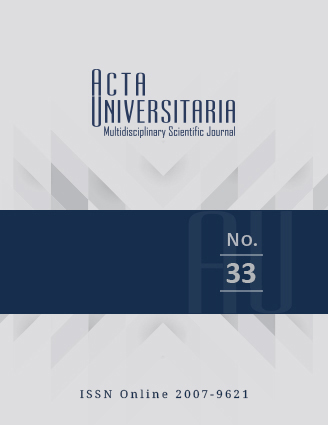Evaluation of diet and its CO2 emissions in Mexican population during covid-19 home confinement
Published 2023-06-21
How to Cite
Abstract
Human diet influences food production chains, which emit about 30% of global greenhouse gases. The objective is to identify changes in diet and CO2 production in Mexican adults before, during, and after covid-19 confinement. The frequency of food consumption was determined by an electronic questionnaire completed by 1114 participants from which the associated CO2 emissions were calculated. Three food groups (high, medium, and low environmental impact) were identified according to their embodied CO2. The most varied diets consumed after confinement were characterized by a significant decrease in the intake of animal products and an increase in fruits (0.5), vegetables (0.4), cereals (1.2), and legumes (0.3). Covid-19 confinement is identified as a factor for dietary modification and its associated CO2 emissions.


